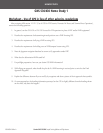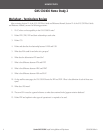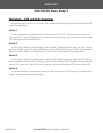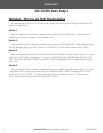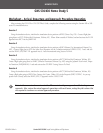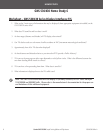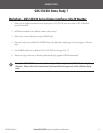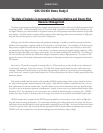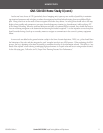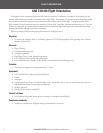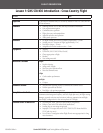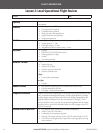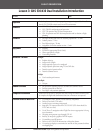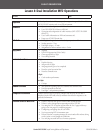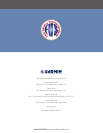
10
HOME STUDY
Garmin GNS 530/430 Sample Training Syllabus and Flight Lessons
190-00334-00 Rev. A
11
HOME STUDY
Garmin GNS 530/430 Sample Training Syllabus and Flight Lessons
190-00334-00 Rev. A
GNS 530/430 Home Study 8 (cont.)
Last but not least, the use of GPS (particularly that of mapping units) opens up new worlds of possibility in maintain-
ing situational awareness and in helping to reduce the navigational workload when deviating from an established ight
plan. Many pilots focus on the need to enter a waypoint rst before they deviate. In reality, pilots should refer to the map
display when possible and commence a turn-away from the dangerous situation (eg. thunderstorm) while notifying ATC
of the change of heading. When the workload decreases and safety of continued ight is ensured, they should then start to
focus on resuming navigation to the destination and entering the needed waypoints. It is also important to note that pilots
should consider having a back-up or secondary means to navigate or communicate in the event of a primary equipment
failure.
As more tools are added to the general aviation cockpit in the form of terrain depictions, TAWS, etc., pilots should learn
the limitations of the tools and then integrate the tools’ strengths into their own ADM process. When evaluating the ADM
process, the key is planning as far ahead as possible to maximize the utility of the information at hand. This ability to “stay
ahead of the airplane” when referring to managing ight performance is of equal value and force in using modern avionics.
As the old saying goes, “follow the six P’s; Proper Prior Planning Prevents Poor Performance.”



